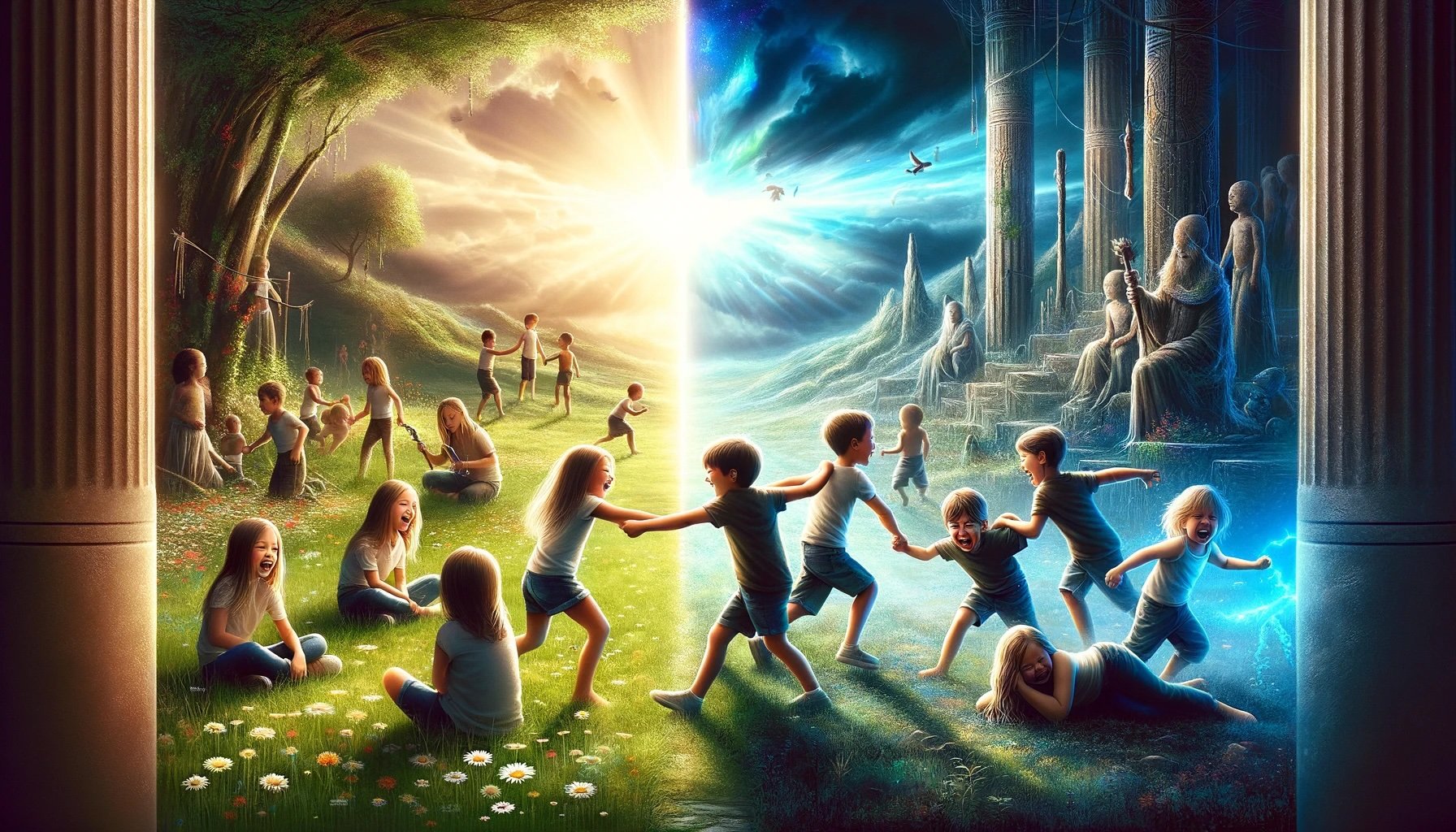VIDEO TRANSCRIPT:
Welcome to Interlude I, Lesson 2, of Finding Your Way. In this lesson, we will discuss one of the fundamental conflations in the human psyche. This particular conflation has existed since the fall of Lemuria, and so we can perceive all of recorded history, and the time of Atlantis before that, as one long exploration of what happens when a species does not understand the difference between playfulness and silliness.
Many of you may not recognize the difference between the two words. Playfulness is the energy of wholesome interaction. Think of times when you’ve seen children play together with enthusiasm but without chaos, where the interactions create a self-perpetuating virtuous cycle in which adults don’t have to intervene, and the play continues in harmony. Playfulness is a positive energy, which as we will discuss towards the end of Chapter 2, is an energy that moves towards love and unity. Through play, we experience grace and joy.
Silliness, on the other hand, is a negative energy, moving towards fear and separation. It is a type of dissociation, in which the child (or adult) is not entirely present, and the energy has a discordant note that feels chaotic. The nature of negative structures is that they suffer from spiritual entropy - they are constantly losing energy, and therefore require outside intervention to continue. That is why, if allowed to lead to its conclusion, silly behavior inevitably leads to injury, damage, or hurt feelings. Negative structures always yield negative outcomes, unless additional energy is given to the system in order to stabilize it. That is why when children are silly, adults have to constantly intervene to prevent an unhappy outcome for some or all of the participants.
In our society, neither adults nor children understand the difference between playfulness and silliness. As a result, when children start to grow up and become teenagers, society tells them that they have to reject silliness in order to become adults. In rejecting silliness, teenagers also stop playing, since they don’t know the difference. This causes them to lose their easy path to grace and joy. That is why teenagers seem so anguished. They are literally torturing themselves.
As adults, we have rejected silliness, and we have not chosen playfulness in its place. As we will discuss in Chapter 6, when we reject something, we are creating an unconscious attachment to it, since any aversion is actually another form of clinging. As a result, in rejecting silliness, we begin unconsciously moving in all sorts of silly ways without realizing it. And because we aren’t choosing playfulness, our memory of it fades away. This leads to the Peter Pan syndrome experienced by so many in this world, in which they never really want to grow up, because it feels so lonely and sad to be an adult. So much of our societal structure, including fame and the nature of celebrity, is built around silliness. Instead of those who are famous being genuinely admired thought leaders, most of the famous people in this world are people who are there because of how they look or how much money they have. If they are famous for their behavior, it is often childish behavior, in which they have turned their life into a soap opera for everyone’s entertainment.
Since we no longer remember how to play, and therefore how to easily find grace and joy, as adults we seek what we think is the next best thing, which is pleasure. Directly seeking pleasure leads to pain, and it is from this misunderstanding that all addiction arises.
Coming to understand the difference between playfulness and silliness is a key step on the path to maturity. By understanding this difference, we can let go of childishness, while embracing our childlike nature. If we learn how to play again as adults, we find grace and joy in all that we do, and addiction falls away.
Here is a transmission that will help you to understand the difference between playfulness and silliness, and help you to learn to move with an attitude of playfulness in all that you do. It uses a magic known as Cosmic Creation, which we will discuss in more detail in Chapter 15:
{Perceive Playfulness as Playfulness and Silliness as Silliness}
In the next lesson, we will discuss the words Desire, Wish, Want, Need and Require, and how the interaction of some of those words leads to all of our concepts of scarcity. Until then and always, be well.
